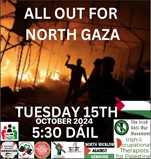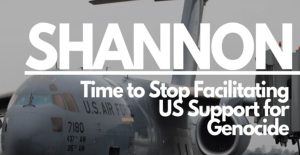Few would disagree in or out of Lebanon that the attempt by Israel to occupy the country was defeated soundly. Little was achieved by the invasion except the killing of over a thousand people, the destruction of the country’s infrastructure and a consequent radicalisation of the population. Hizbullah came out of the war with its image enhanced and with the Shias, the largest section of the Lebanese population, supporting it to the hilt. The majority of the Christian population, especially those represented by the ‘Free Lebanese Patriot Movement’ and sections of Sunnis and Druze (1) are now allied to Hizbullah in a political oppositional alliance to the government.
Few would disagree in or out of Lebanon that the attempt by Israel to occupy the country was defeated soundly. Little was achieved by the invasion except the killing of over a thousand people, the destruction of the country’s infrastructure and a consequent radicalisation of the population. Hizbullah came out of the war with its image enhanced and with the Shias, the largest section of the Lebanese population, supporting it to the hilt. The majority of the Christian population, especially those represented by the ‘Free Lebanese Patriot Movement’ and sections of Sunnis and Druze (1) are now allied to Hizbullah in a political oppositional alliance to the government.
The latter has shown itself to be internally ineffective in spite of the widespread support by the Bush Administration and some EU governments. In this respect, it is noteworthy that the new French president Sarkozy is trying to extricate his country’s political interests in Lebanon, where it has been traditionally influential, out of the frame of the personal intimate friendship between ex-President Chirac and the highly influential Hariri clan. The extent that the French approach to Lebanon will dovetail with USA policies in the area remains to be seen.
The French government has called for a meeting in Paris, tomorrow July 14 , to which a number of second ranking leaders of a variety of political groupings have been invited. These would represent organisations that were present in a number of meetings held in Beirut before the Israeli invasion. The French objective is to bring the parties closer again, with a possible declaration of intentions, that could be followed by a meeting in Beirut of the main leadership working out strategies for action. Sarkozy’s description of Hizbullah as a terrorist group, earlier this week, nearly forced the latter to not participate at the meeting – however, Sarkozy’s remarks were followed by an official French declaration, almost an apology, that Hizbullah is a major political faction and has social and political power in Lebanon Hizbullah representatives will be in Paris but no doubt the remarks have left their shadow.
In this volatile environment there are two highly important political issues that throw further doubts about Lebanon’s future and whether a smooth political solution can be worked out to resolve the crisis:
One The current term of the Lebanese President comes to an end Nov 24th. According to the Constitution, the Parliament has to be recalled for a meeting by late August to discuss the presidency. The only person who has the power to call such a meeting is the Speaker Nabih Berri (2). He is, however, part of the opposition. A further difficulty is the constitutional provision of the need for a quorum of two thirds of the member to agree to call a presidential election. None of the two opposed groups can muster two thirds. Historically, Lebanese presidential elections were a matter where foreign influences in Lebanon played a major part. International powers influential in the country, with the agreement of the Syrian government, would facilitate the naming of the president and then organise the getting of the necessary majority votes in the parliament. The only exception to this was the election of President Frenjieh, of whose end of term, Lebanese civil war begun. This time around, there are serious questions afoot, as the US administration tries hard to score a victory by supporting the present Siniora government.
Two The existence of the militant outfit Fath el Islam in the Palestenian camps, that continue to fight against the Lebanese Army, with heavy casualties from both sides. There are many questions about these groups the most important of which is who is behind them and where do they get their financial/infrastructural/political support. Many threads that are surfacing lead to the assumption that they were supported and financed by sections of the Lebanese Government as a potential Sunni power designed to face up to Hizbullah and their Shia support. If these theories are founded, they constitute a serious drawback in the process of building a secular democratic Lebanon – as is the wish of most of the Lebanese people. There is a lot of evidence emerging that this group constituted a node where Jihadists prepared to move to Iraq. There is also ample evidence that the group was behind many bomb attacks and the assassination of Mr Emil Jmail, the Phalangist MP, an act which was most certainly not part of the program of their patrons. On July 13, the al Nahar daily, the most influential conservative newspaper in Lebanon, interpreted the UNs latest report on the assassination of Mr Harriri, as indicating that the same group was implicated in the assassinations of the anti-Syrians Jmail, Gubran Twainy(chief editor of al Nahar) and Qasir (journalist with Al nahar). This will raise a lot of questions in the government who has tried consistently to blame Syria directly.
The Lebanese political environment is riddled with plenty of explosive material that requires little detonating material power to ignite. There are doubts that few, internally to Lebanon, would try such a savagery because of the considerable power held by Hizbullah , a strength amply demonstrated last year last year when they were able to withstand the Israeli assault. Lebanese people know that Hizbullah will not use their power for settling internal scores. It sees as its role to defend Lebanon.
The only thing which can ignite this explosive situation is an external power, so all Lebanese eyes and hearts are now focussed on Iraq and Palestine, hoping that the Bush Administration will not chose Lebanon as the area to affirm its supposed support for democracy and justice.
Let us join our hope along with with the Lebanese people and look for a relatively cool August. Let us pray that a new Lebanese President will come through a Lebanese consensus – with the help of international communities.
(1) The Druze are a relatively small religious sect. It originated in Egypt in 1017 and is named for one of its founders, Muhammad al-Darazi (d. 1019/20). Strictly monotheistic and based in IslamEgypt, and expect him to return someday to inaugurate a golden age. The Druze are divided hierachically into two orders — the sages, who are fully initiated in the beliefs of the religion, and the ignorant, who constitute the uninitiated lay majority. They permit no converts, either to or from their religion, and no intermarriage. Their religious system is kept secret from the outside world, and they are permitted to deny their faith if their life is in danger. In the early 21st century they numbered about one million, mostly in Syria and Lebanon., particularly Isma’ili Islam, Druze beliefs include an eclectic mixture of elements from Gnosticism, Neoplatonism, Judaism, and Iranian religion. The Druze believe in the divinity of al-Hakim bi-Amr Allah (985 – 1021), sixth caliph of the Fatimid dynasty of
(2) Nabih Berri is the speaker of the Lebanese Parliament of Lebanon. He heads the mostly Shi’a Amal Party. Berri obtained a Law degree in 1963 from the Lebanese University, where he had served as the student body president. During the 1960s, he joined the Arab Nationalist Movement. In the early 1970s he worked in Beirut as a lawyer for General Motors. He also lived in the Detroit-area from 1976 to 1978. He held a series of positions in the Amal movement during the 1970, as a follower of Imam Moussa Sader, a Shi’a cleric who disappeared in mysterious circumstances while on a trip to Libya in 1978, and who is thought to be liquidated by the president of Libya Muammar Ghaddafi.The resignation of Hussein el-Husseini from his post as leader of Amal resulted in Berri’s assumption of full control in April 1980. He led the Amal movement during the fierce fighting of Lebanon’s civil war. In 1984, he joined the National Unity government as Minister for Southern Reconstruction, and later, of Justice and of Electrical and Hydraulic Resources, under Prime Minister Rashid Karami. Berri again served as a Cabinet minister from 1989 to 1992, when he was elected Speaker of the National Assembly on November 20.






